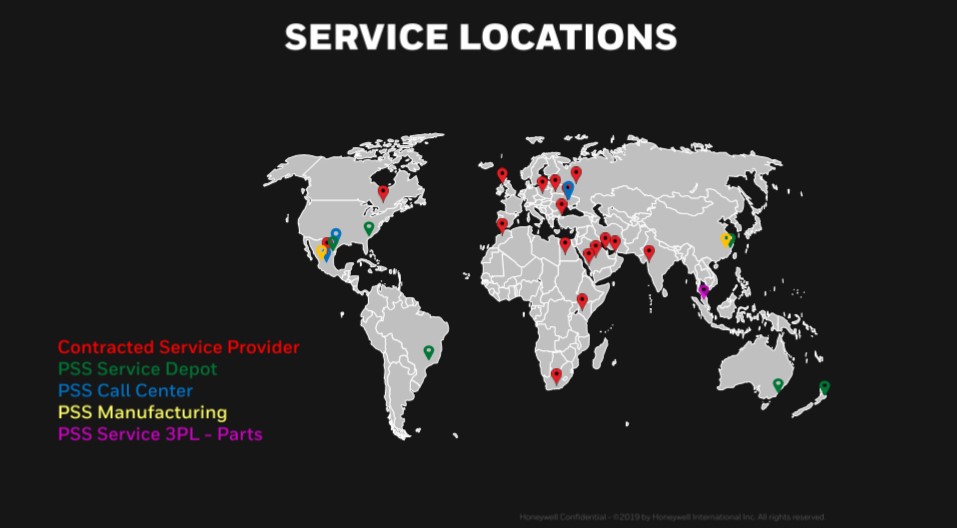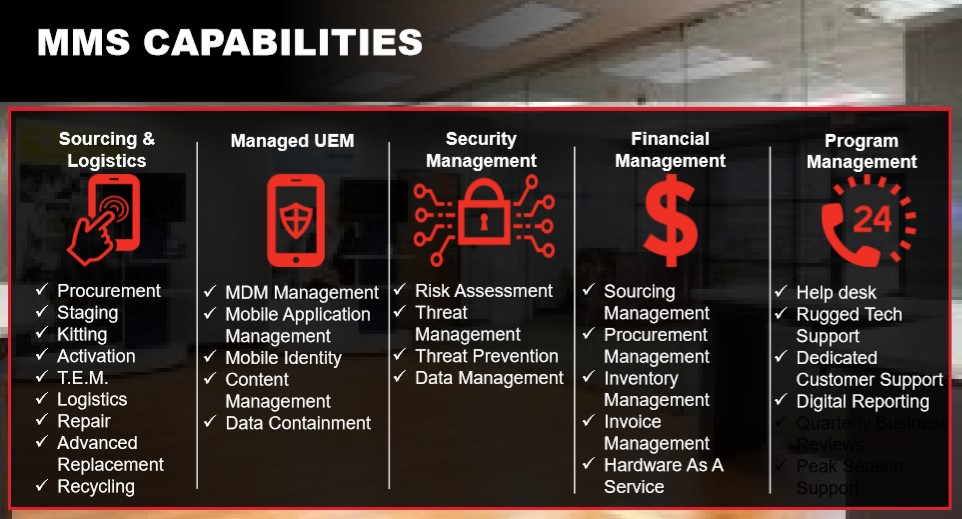-
Global
-
Africa
-
Asia Pacific
-
Europe
-
Latin America
-
Middle East
-
North America
- |
- Partners
- |
-
Currency:Localize your Content
You can set your preferred currency for this account.
Choose a Currency
Currency- CHOOSE YOUR CURRENCY
Update Currency
Changing Currency will cause your current cart to be deleted. Click OK to proceed.
To Keep your current cart, click CLOSE and then save your cart before changing currency.
-
Select Account
Switching accounts will update the product catalog available to you. When switching accounts, your current cart will not move to the new account you select. Your current cart will be available if you log back into this account again.
Account# Account Name City Zip/Post Code CANCELPROCEEDMy Account
-
Support
- View All Productivity Solutions
- Warranties
- Patents
- Global Locations
- Technical Support
- Discontinued Products
- Quality Program and Environmental Compliance
- Return Material Authorization (RMA)
- Legal Documents
- Product Certification
- Software Downloads
- Cyber Security Notifications
- Case Studies and Success Stories
- View All Sensing Solutions
- Sales Contact Form
- Technical Support
- Certificates
- eCOM Portal
- Distributor Inventory
- Return Material Authorization (Test & Measurement)
- Return Material Authorization (Citytech)
- Return Material Authorization (EnviteC)
- Legal Documents
- Intelligent Life Care
- Return Material Authorization (ILC)
-
Global
-
Africa
-
Asia Pacific
-
Europe
-
Latin America
-
Middle East
-
North America
- |
- Partners
- |
You are browsing the product catalog for
You are viewing the overview and resources for
- News & Events
- Featured stories
- Pros and Cons of In-house vs. Outsourcing Managed Mobile Services
Pros and Cons of In-house vs. Outsourcing Managed Mobile Services


Pros and Cons of In-house vs. Outsourcing Managed Mobile Services
Barry J. Ewell
11 February 2021
How is your enterprise managing your mobile estate of ruggedized computers, scanners, printers, wearables, tablets, and smartphones? These mobile deployments can encompass thousands of devices that include regionally diverse service plans and contract variations. Supporting the life-cycle management of these mobile devices comes down to three options:
- Do you manage the enterprise mobile estate internally?
- Do you outsource the managed mobile services (MSS)?
- Do you adopt a blended model both internal and selected services from an MMS provider?
According to Gartner, “The overarching ambition is to ensure that the mobile estate is managed effectively both operationally and commercially. Many enterprises increasingly see managed mobility services as fundamental to an eventual move to a Unified Endpoint (UEM) strategy, and several are considering whether and when to integrate MMS into their managed workplace strategy.”1
At Honeywell, we support national, multinational or global enterprises with our world-class Managed Mobile Services with over 1.9+ million devices that are under managed agreement. We have birds-eye view regarding the pros and cons of how to best manage a mobile estate of varying complexities.
In this article, based on Honeywell’s MSS global experience, we will explore some of the key evaluation criteria enterprises need to consider when deciding whether to manage the mobile estate internally or outsource.
Pros and Cons of In-house vs Outsourcing Managed Mobile Services
Let’s start by defining what we mean by Mobile Mange Services (MSS). MSS includes1 the IT and process management services needed to plan, procure, provision, activate, manage and support mobile devices, network services, related management systems and mobile applications. These services are designed to support the corporate-liable devices as well as individual-liable BYOD (Bring Your Own Devices) that employees use to access company resources and information. Managed mobility solutions also provide business process administration, such as expense management, asset management and logistics (including recycling, returned-material authorization management, and ordering and provisioning from the help desk).
What type of talent is needed for MMS? Managing a mobile device estate is complex. The team needs to be able to manage a variety operating systems, applications, and management systems. When you have thousands of devices and users, you will need talent with expertise across different stages of the mobility lifecycle.
- Talent needs experience in areas such as contract compliance, billing analysis, plan recommendations, security, and mobile fleet optimization.
- Talent needs to be fluent in best practices, emerging technology, and trends in the mobile environment.
Finding and building the right team on your own comes not only with a high cost but also a high risk. The talent you assemble must understand how the devices are deployed, best practices for keeping the devices safe from cyberattacks, maximizing their uptime, be able to track assets as well as being an expert at managing voice and data usage. Once you have the team in place you must maximize your investment in them and retain the talent while dealing with financial constraints.
Whereas a good MMS provider will provide best practice knowledge, support and resources. Providers have in place an organization that with domain experience and systems for business process administration, such as expense management, asset management and logistics (including recycling, returned-material authorization management, and ordering and provisioning from the help desk). The provider will keep you informed about emerging technology and trends and work closely with you to implement continuous solution improvements.
The provider will have established service centers and systems in place. Because they are supporting multiple enterprises, they have volume to efficiently use all team members which provides a lower management cost per device.
What type of support is needed for better outcomes? Once an enterprise procures an asset or service, they experience many stages of mobile fleet management that are managed across various departments. Support is not one-size fits all. A managed mobile service provider needs to be able to support corporate-liable devices as well as individual-liable BYOD (Bring Your Own Devices) that employees use to access company resources and information. Support includes, for example, being able to
- Provide 24x7x365 help desk in multiple languages
- Respond quickly to unplanned-for and cyclical changes in devices, operating system updates and related technologies.
- Easily manage provisioning and deployment requirements for mobile devices across the enterprise.
Many enterprises would have great difficulty to offer a 24x7x365 support team with the needed breadth and depth of knowledge. For enterprises with operations and employees deployed across the world, providing support is very challenging and costly.
When you consider MMS, you have to remember that it is more than just the cost of the service, but it also includes the hardware cost and the internal time and expenses related to managing the device estate.
A good service provider should be able to provide a comprehensive solution that is customized to support hardware, operating systems and applications allowing you to tap into best practice knowledge and services. This includes proven and dedicated resources to provide keys services such as the following:
- Device deployment – Put devices in the hands of your employees quickly and securely
- Helpdesk support – Get 24/7 customer-specific support for issue resolution and end-user service
- Maintenance Support – Ensuring devices are ready for mission critical operations
- Secure administration – Offload the day-to-day administration of your mobile device management (MDM) environment
- Integrated intelligence – Get mobility intelligence to help better manage mobile devices
An MSS provider can help you keep up with fluctuations in your business’ and users’ needs. The provider is able to provide a customer-centric support model that tailors their support options to align with the company goals, objectives and requirements. When you outsource support to quality provider, you can expect a mobile service center that can handle all your service needs because they are supporting multiple enterprises and have volume to provides a lower management cost per device.
Bottomline. Enterprises that choose to outsource their mobility managed services are able to focus on their core business and create value. The right MMS provider will help you realize:
- Internal/operational efficiencies. The MSS provider will help manage and optimize your mobile estate based on best practices. This includes areas like support, security, billing and expense analysis and management, plan recommendations, contract compliance. For example, Honeywell continues to invest heavily in security-related capabilities such as Mobile Threat Defense (MTD), threat prevention and real-time asset tracking to monitor whether behavior related to the device diverts from the norm.
- Program cost savings optimization. When you consider MMS, you have to remember that it is more than just the cost of the service, but it also includes the hardware cost and the internal time and expenses related to managing the device estate. At Honeywell, for example, we have helped some customers reduce their network and mobile expenses by 20-30%. Our customers can realize a Total Cost of Ownership (TCO) reduction of greater than 10%.
- Improved business process agility. Every enterprise is different. There is no one size fits all service. The right MMS partner will understand your business needs and expectations and provide support programs and services that align to company goals and objectives. At Honeywell we provide enterprises tailored managed services in areas such as managed deployment, spare pool management, help desk, image management, project management and more.
- Improved customer relations/service. Your business depends on being able to deliver an effective, seamless mobile experience. You need a comprehensive set of solutions to address every phase of the mobility life cycle, from device selection to proactive security. Honeywell is an experienced managed mobility services (MMS) provider, offering you a full range of planning, deployment, support, and mobility management services. For example, Honeywell MMS Helpdesk supports hardware, operating systems and applications to meet your specific requirements. This includes
- Multi-tier telephone support designed to meet your requirements
- 24x7x365 support when customer needs it the most.
- Multi-Lingual English, Spanish, French and German are standard with other languages are available.
- Contracts are available in 2-year, 3-year and 5-year increments.
- 85% first-call help desk issue resolution.
Our help desk is device agnostic and available for widely deployed iOS, Android and Windows 10 devices, as well as non-Honeywell ruggedized and purpose-built field workforce devices.
Ultimately, the question is: What will best serve your enterprise and internal and external customers?
Overview of Honeywell Managed Mobile Services
Honeywell Managed Mobile Services provide solutions for enterprises throughout the globe by supporting the life cycle management of mobile devices from infrastructure planning and installation, to migration, ongoing support, and recycling. At every stage, Honeywell MMS gives you the confidence of having leading-class technologies combined with service and support plans that are designed to keep you operational for longer.
You have a single solution for managing your entire mobile environment of corporate-liable devices as well as individual-liable BYOD that employees use to access company resources and information. We are device agnostic and available for widely deployed iOS, Android and Windows 10 devices, as well as non-Honeywell ruggedized and purpose-built field workforce devices. That helps you cut down on complexity, unlock productivity and efficiency, and get the most from your mobile initiatives.
As blended direct and indirect service provider, we provide strong depot and on-site repair services across a broad range of devices from our 24 global logistics services and support centers located across all continents.


Honeywell provides depot services from its own facilities in each region, as well as with partners in Europe and Latin America, with each region capable of processing thousands of devices per day. Honeywell device procurement platform integrates with existing customer ordering or ITAM systems, including ServiceNow, BMC Helix ITSM (formerly Remedy) and Salesforce.
Honeywell focuses the business on productivity solutions aimed at maximizing device uptime and reducing or eliminating wait times for mobility service or support resolution. Hardware procurement, management and support solutions are device agnostic and available for widely deployed iOS, Android and Windows 10 devices, as well as non-Honeywell ruggedized and purpose-built field workforce devices.
![]() Honeywell partners with leading voice and data providers and telecom expense companies to support over 1.9+ million devices. Honeywell is just 1 of 24 companies globally that are recognized by Android as being Android Enterprise Recommend as a managed service provider. 2
Honeywell partners with leading voice and data providers and telecom expense companies to support over 1.9+ million devices. Honeywell is just 1 of 24 companies globally that are recognized by Android as being Android Enterprise Recommend as a managed service provider. 2
leading voice and data providers and telecom expense companies
Honeywell managed mobile service offerings covers full device lifecycle management (DLM) services based on three service package tiers (Platinum, Gold and Basic). This is a global service program that is designed to help customers get the service levels that they actually need. The Honeywell solution includes:
- Sourcing and Logistic Support
- Managed UEM Services
- Security Management
- Asset and Financial Management
- Program Management


Sourcing and Logistics. Sourcing and Logistics support allows you to customize the support you need to maximize your operational performance. Honeywell will stage, kit and activate any device from any manufacturer with any operating system and will deliver the device on time and on budget. Once deployed Honeywell’s Expense Management service will assist in managing costs within operations for all devices including BYOD devices by ensuring your only paying for voice and data on devices that are being used by your employees. Honeywell’s support does not end with expense management but also provides Logistic services such as spare pool management, depot and onsite repair services for rugged and consumer devices. Once the device has reached it end of useful life, Honeywell can recycle or reuse the mobile device.
Managed UEM. Managed UEM services are essential to keep device compliant with corporate governances in today’s ever-changing digital world. Honeywell’s MDM Management will ensure that all devices are updated with latest software updates, user’s our compliant to the rules and regulations on the use of BYOD or corporate owned assets. Honeywell’s team are experts in reporting in attempt to access data that is stored in the cloud or on premise.
Security Management. Honeywell’s story begins 100+ years ago as a global leader in industrial manufacturing and advanced technology. We have used that expertise to drive cybersecurity innovation with over 15 years as a key leader in industrial cybersecurity solutions helping transform and protect the world’s most critical infrastructures.
Our broad portfolio includes Operational Technology (OT) cybersecurity software products and services that allow customers to simplify, strengthen and scale industrial cybersecurity across an enterprise. The initial MMS offering was targeted as delivering MDM/EMM as a Service, Honeywell has expanded to also deliver identical services for Mobile Threat Management, Content Management and Application platform management. Our global team of 300+ Certified Cybersecurity Experts have successfully implemented 5,000+ cybersecurity projects, managed 400+ industrial cybersecurity sites, conducted hundreds of risk assessments and have the breadth of resources to help execute projects of every size and complexity.
Asset and Financial Management. Honeywell establishes a centralized platform for each customer, including Single Sign-on, catalog management (by employee type and region/location if needed), built in approval workflows through integration with the customer's HR file and reporting integration with a variety of third party systems, such as ServiceNow and Remedy.
Inventory is also maintained and matched to MDM and carrier records in an automated fashion, ensuring that customers can utilize Honeywell's platform as a single inventory point of record regardless of carrier, MDM or device type. Additionally, Honeywell offers a comprehensive platform for invoice processing, optimization and auditing. In both real-time, and on a monthly basis, Honeywell reviews customer telecom spend as a way to identify opportunities for cost reductions and efficiencies.
On average, our customers see a reduction of $8-$10 per device per month through this service, which is integrated with 250 wireless carriers worldwide.
Program Management. A key differentiator for Honeywell is its professional services (PS) organization. Staffed with experts in project and program management and mobility consulting, the PS team is the overarching mechanism to effectively onboard managed mobility services, provide mobility solution guidance and decisions on behalf of customers, including operating systems, devices, MDM/EMM, third party software, accessories, peripherals and processes.
The Honeywell team commence service delivery through an extensive process of gathering and documenting requirements, and development of service delivery workflows. The project management team ensures all customer requirements are captured, documented, and implemented as well as driving a process for first article and configuration approval, which includes customer security and application software.
Learn more about Honeywell’s Managed Service offering and how we can customize a MMS solution that meets your every need. Contact a Honeywell Solutions Expert today! Call 1-800-934-3163
1Source: Gartner, Magic Quadrant for Managed Mobility Services, Katja Ruud, Leif-Olof Wallin, Bill Menezes, Published 1 April 2020

Barry J. Ewell is a Senior Content Marketing Communications Specialist for Honeywell Industrial Automation. He has been researching and writing on supply chain topics since 1991.
Let's Connect!
Sign up to receive exclusive communications from Honeywell including product updates, technical information, new offerings, events and news, surveys, special offers, and related topics via telephone, email, and other forms of electronic communication.
Copyright © 2025 Honeywell International Inc
Maximum File Size
Maximum Files Exceeded
Due to inactivity you will be logged out in 000 seconds.
Maximum File Size
Maximum Files Exceeded
You cannot access this page as this product is not available in your country.

